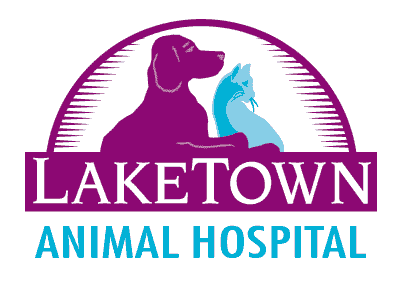Toxic Thanksgiving Foods
- laketownanimal
- Nov 20, 2018
- 2 min read

Thanksgiving can be a wonderful time for family and friends to get together to celebrate and spend time together, but it can be a particularly dangerous time for our pets. Food, travel and parties can all pose a threat to animals. Knowing what hazards to avoid, and what to do if exposure occurs, can keep your pet safe and ensure you have a happy holiday season.
Food safety: keep your pet healthy: say no to table scraps.
Chocolate: dark chocolate and baker’s chocolate are the most dangerous, but even milk and white chocolate can cause problems such as vomiting, hyperactivity, abnormal heart rhythm, seizures, and death.
Fatty foods (like turkey skin and nuts): can sometimes cause pancreatitis, a life-threatening condition in pets.
Grapes & raisins (often found in holiday dishes): can cause kidney damage. Ingestion of any amount needs to be treated aggressively.
Bones: may contain harmful bacteria and can also splinter and get lodged in or puncture your pet’s digestive tract. Guard that turkey carcass!
Xylitol (a sweetener used in many different foods): will cause vomiting, lethargy, and a dangerous drop in your pet’s blood sugar leading to seizures, liver failure, and death – even one bite!
Garlic, onions, chives: will cause stomach upset and damage to red blood cells.
Raw eggs: can contain bacteria such as salmonella and E. coli that can cause illness in pets and people.
Alcohol: any quantity can cause serious harm to dogs and cats.
If you suspect your pet has ingested any of these foods, contact your veterinarian or the ASPCA Poison Control center immediately (888-426-4435).
Safety tips for parties: keep your pets safe and happy by planning ahead.
Visitors: some pets are shy or nervous around new people, and higher than normal noise or activity levels can cause a lot of stress. One solution is to crate your pet with their favorite toy to help reduce anxiety.
Watch for escape artists: with many people going in and out, your pet may bolt out the door and become lost.
ID tags and microchips: make sure your pet has proper identification with your current information. ID tags can be lost or misplaced, but a microchip provides a permanent form of identification that can help reunite you with your lost pet.
Travel concerns: keep your pet in mind whether it is a staycation or a vacation.
Health certificate: your pet needs a signed health certificate from your veterinarian if you’re traveling across state lines or international borders.
Air travel: each airline has their own requirements for flying with your pet. Contact your airline and veterinarian well ahead of time to make sure you fulfill all requirements.
Vehicle: do not leave your pet unattended and be sure to safely restrain your pet and / or the carrier.
Pack for your pet: including current medical and vaccine records, a first aid kit, identification, and any medication(s) your pet is taking.
Boarding / Pet Sitting: make arrangements early, as this is a busy time of year. Vaccines are required for boarding stays.
Following these tips can help ensure you and your pets have a happy and healthy Thanksgiving holiday.



























Comments